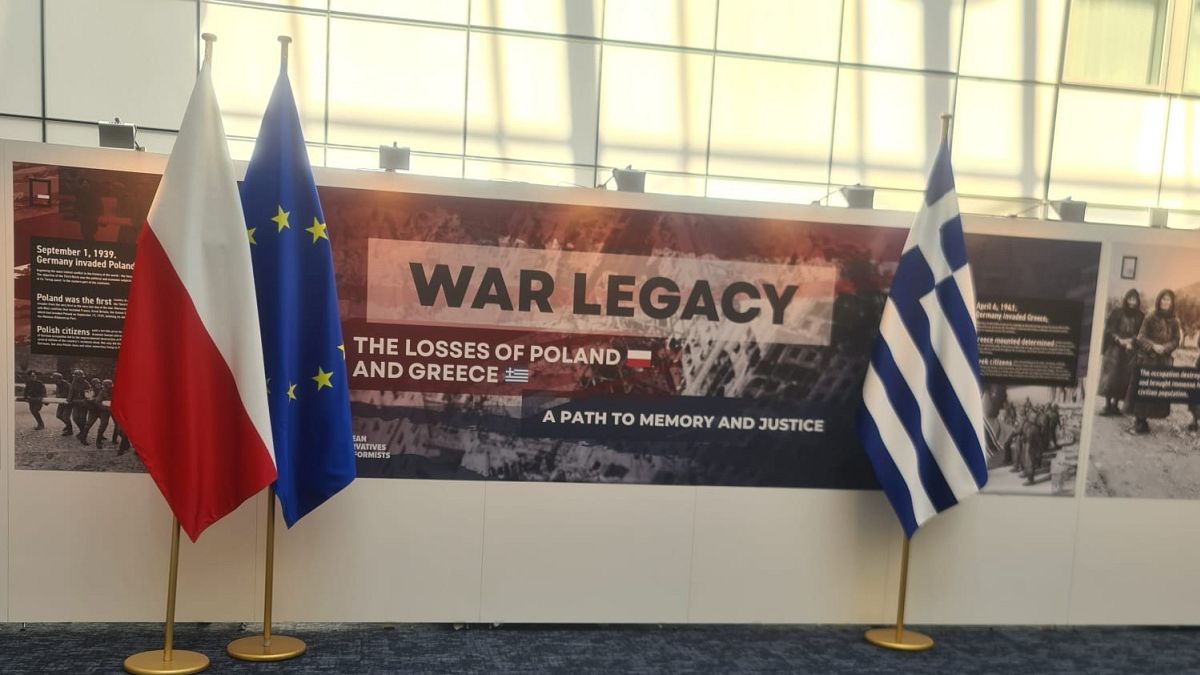Published on
The opening of the photographic exhibition “Legacy of War—The losses of Poland and Greece: A March Towards Memory and Justice” opened on Tuesday at the European Parliament in Brussels.
The event was hosted by Greek MEP Emmanouil Fragkos and Polish MEP Arkadiusz Murlancik, both members of the European Conservatives and Reformists (ECR) political group.
The exhibition, with photographs depicting the invasion, occupation and the resistance, aims to recall the extent of the devastation suffered by Poland and Greece at the hands of Nazi Germany during World War II, pointing out the evidence that the two states must use in their legal fight for reparations.
A debate on “War Crimes and Reparation – Safeguarding the Rule of Law by Addressing Past Injustice” was held with the participation of experts from Greece, Poland, and Italy and members of the European Parliament.
In his statement, Fragkos spoke about Greece’s long-standing identification with just demands, noting the importance of justice in order to close the wounds of World War II.
He referred to the crimes committed by the Nazis against the Greeks and the country’s infrastructure, which condemned Greece to poverty, noting that the claim for reparations is a legally active demand.
His Polish counterpart spoke about transitional justice, the rule of law and the importance of international responsibility in addressing historical crimes and ensuring accountability.
Unfortunately, German MEPs did not attend the event, despite being invited.
Only the first step in renewed efforts to achieve compensation
On the Polish side, the organiser was ECR MEP Arkadiusz Mularczyk. Previously, as deputy foreign minister and Polish MP, he supervised the preparation of a special report on war reparations:
“We spent long months on the work, trying to estimate something that is almost impossible to value. How to value the long and short-term losses caused by the destruction of Poland, of its infrastructure, its monuments, its economy, its potential? Losses in people, those murdered, but also those maimed physically and psychologically, the destruction of the Polish elite?”
So far, the topic is ignored by Germany, which even claims that it is a closed issue. However, there are countries where compensation processes are still going on even now, although it is done in an unusual way. In Italy, for example, where Italian lawyers file lawsuits on behalf of victims, victims’ families and win compensation, the Italian state pays.
MEPs reiterate that the conference and exhibition are only the first step on a long road. The next ones will be the establishment of a special intergroup on war reparations from Germany and, within this framework, cooperation between the affected countries and legislative acts – such as resolutions of the European Parliament, for example.
Video editor • Dominika Cosic

